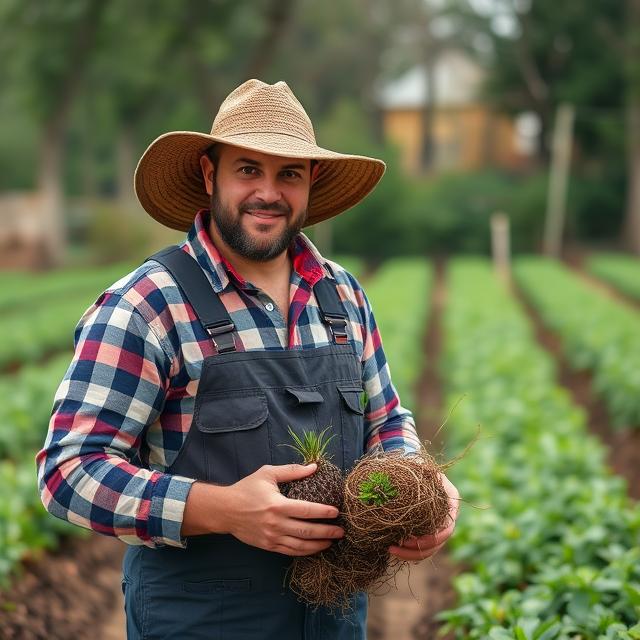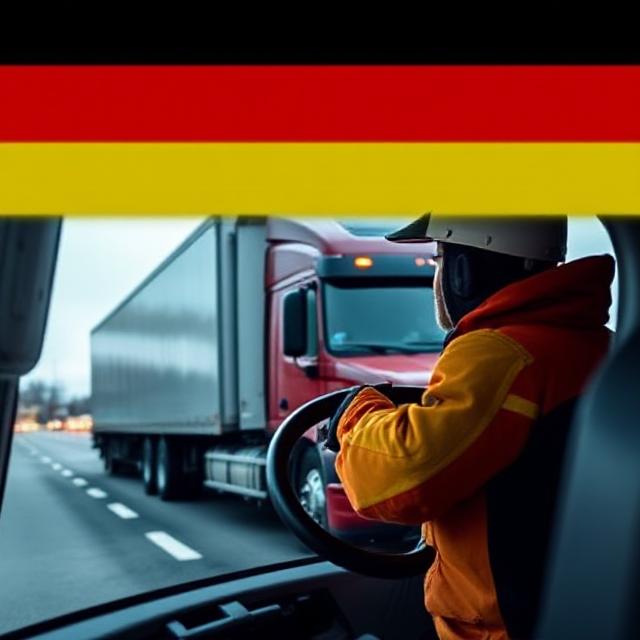Harvest Opportunity: Secure Farm Worker Jobs in Germany with Free Visa Assistance
Germany, a land renowned for its precision engineering, rich culture, and stunning landscapes, is also a powerhouse in agricultural production. With a commitment to sustainable farming practices and a thriving food industry, Germany’s agricultural sector offers a wealth of opportunities for dedicated and hardworking individuals seeking farm worker positions. And now, thanks to various initiatives and streamlined visa application processes, securing these roles and building a life in Germany has become more accessible than ever, often with the added benefit of free visa assistance.
This article will delve into the exciting possibilities of farm work in Germany, providing comprehensive information on available positions, visa requirements, the application process, and vital resources to help you embark on this rewarding journey.
Why Choose Farm Work in Germany?
Germany’s agricultural sector is diverse, ranging from large-scale industrial farms to family-run organic operations. This diversity translates into a wide array of job opportunities, catering to various skill sets and interests. Here are some compelling reasons to consider farm work in Germany:
- Competitive Wages and Benefits: German labor laws ensure fair wages and working conditions. Farm workers typically receive hourly wages that are significantly higher than in many other countries, along with benefits such as health insurance, paid holidays, and pension contributions.
- Diverse Farming Opportunities: You’ll find opportunities across various agricultural sectors, including fruit and vegetable harvesting, livestock farming, dairy production, viticulture (wine-growing), and organic farming. This allows you to specialize in an area that aligns with your experience and preferences.
- State-of-the-Art Technology: German farms often utilize advanced technologies and modern equipment, providing workers with opportunities to learn and develop valuable skills in precision agriculture.
- Cultural Immersion: Working in Germany provides an unparalleled opportunity to immerse yourself in German culture, learn the language, and experience the country’s rich history and traditions.
- Career Advancement: For those who demonstrate dedication and a strong work ethic, there are opportunities for career advancement within the agricultural sector, potentially leading to supervisory or management roles.
- Free Visa Assistance: Many recruitment agencies and employers offer free visa assistance, simplifying the often complex immigration process and making it more accessible for international workers.
Types of Farm Worker Jobs Available
The specific tasks and responsibilities of farm workers vary depending on the type of farm and the season. Common job roles include:
- Harvesting: Picking fruits, vegetables, and other crops during harvest season. This often requires physical stamina and attention to detail.
- Planting and Sowing: Preparing fields, planting seeds, and nurturing young plants.
- Animal Care: Feeding, watering, and caring for livestock, including cattle, pigs, poultry, and sheep.
- Operating Farm Machinery: Operating tractors, combine harvesters, and other agricultural equipment (requires appropriate training and licenses).
- Irrigation and Fertilization: Maintaining irrigation systems and applying fertilizers to crops.
- Weed Control: Removing weeds manually or using herbicides.
- Sorting and Packing: Sorting and packing harvested produce for transportation and sale.
- Greenhouse Work: Managing plants in greenhouses, controlling temperature, humidity, and irrigation.
- Viticulture: Working in vineyards, pruning vines, harvesting grapes, and assisting with wine production.
Visa Requirements for Farm Workers in Germany
For individuals from outside the European Union (EU), a visa is typically required to work in Germany. The specific type of visa will depend on the duration of employment and the individual’s qualifications. The most common visa options for farm workers include:
- Schengen Visa (for short-term employment): This visa allows you to work in Germany for up to 90 days within a 180-day period. It is suitable for seasonal work, such as harvesting.
- National Visa (for long-term employment): This visa is required for employment lasting longer than 90 days. It allows you to live and work in Germany for an extended period.
- Work Permit (Arbeitserlaubnis): To obtain a national visa for employment purposes, you typically need a work permit from the German Federal Employment Agency (Bundesagentur für Arbeit). Your employer usually applies for this permit on your behalf.
The Application Process: Step-by-Step Guide
Here’s a detailed guide to navigate the application process for farm worker jobs in Germany:
-
Research and Identify Job Opportunities: Begin by researching available farm worker positions in Germany. Utilize online job portals, recruitment agencies specializing in agricultural placements, and the websites of German agricultural organizations. Some reputable websites to consider include:
- Bundesagentur für Arbeit (German Federal Employment Agency): https://www.arbeitsagentur.de/ This is the official website for job searching in Germany.
- EURES (European Job Mobility Portal): https://ec.europa.eu/eures/portal/en/homepage A European platform listing job opportunities across various countries, including Germany.
- Indeed Germany: https://de.indeed.com/ A popular job search engine with a wide range of listings.
- Jobbörse.de: https://www.jobboerse.de/ A German job board with a focus on German-speaking countries.
-
Prepare Your Application Documents: Gather all the necessary documents for your job application. This typically includes:
- Resume/CV: A well-structured resume highlighting your relevant experience, skills, and qualifications.
- Cover Letter: A compelling cover letter expressing your interest in the specific farm worker position and highlighting your suitability for the role.
- Copies of Educational Certificates and Transcripts: Provide copies of your educational certificates and transcripts to verify your qualifications.
- Copies of Work Experience Certificates: Include copies of certificates from previous employers to demonstrate your work experience.
- Passport Copy: A clear copy of your passport.
- Passport-sized Photographs: Recent passport-sized photographs.
-
Submit Your Application: Carefully review the job posting and submit your application according to the employer’s instructions. Ensure that your application is complete, accurate, and tailored to the specific job requirements.
-
Interview Preparation: If your application is shortlisted, you may be invited for an interview. Prepare for the interview by researching the company, reviewing common interview questions, and practicing your responses. Be prepared to discuss your experience, skills, and motivation for working in Germany.
-
Secure a Job Offer: If you are successful in the interview, you will receive a job offer from the employer. Carefully review the terms and conditions of the job offer, including the salary, working hours, benefits, and duration of employment.
-
Visa Application: Once you have a job offer, you can begin the visa application process. Your employer will typically assist you with the necessary paperwork and procedures. You will need to apply for a visa at the German embassy or consulate in your country of residence.
-
Health Insurance: Before starting work in Germany, you will need to obtain health insurance. German law requires all residents to have health insurance. Your employer may offer health insurance as part of your employment package.
-
Registration with Local Authorities: Upon arrival in Germany, you will need to register with the local authorities (Meldebehörde). This is a mandatory requirement for all residents of Germany.
Resources for Free Visa Assistance
Navigating the visa application process can be daunting, but many organizations and employers offer free visa assistance to help you through the process.
- Recruitment Agencies: Many recruitment agencies specializing in agricultural placements offer free visa assistance to their candidates. They will guide you through the application process, provide the necessary paperwork, and assist with communication with the German authorities.
- Employers: Some employers may offer free visa assistance as part of their employment package. They will handle the visa application process on your behalf, saving you time and effort.
- German Embassies and Consulates: The German embassies and consulates in your country of residence can provide information and guidance on the visa application process.
Essential Tips for Success
- Learn Basic German: While not always mandatory, learning basic German will significantly enhance your experience and make it easier to communicate with colleagues and integrate into German society.
- Be Prepared for Physical Work: Farm work can be physically demanding, so be prepared for long hours and strenuous tasks.
- Be Adaptable and Flexible: Agricultural work is subject to seasonal changes and unforeseen circumstances. Be adaptable and flexible to handle changing work demands.
- Respect German Culture: Familiarize yourself with German customs and etiquette to ensure a positive and respectful work environment.
- Network and Connect: Build relationships with colleagues and other individuals in the agricultural sector. Networking can open doors to new opportunities and provide valuable support.
Conclusion
Farm work in Germany offers a fantastic opportunity for individuals seeking stable employment, competitive wages, and cultural immersion. With the availability of free visa assistance and a streamlined application process, securing a farm worker job in Germany has become more accessible than ever. By following the steps outlined in this article and utilizing the resources provided, you can embark on a rewarding journey and build a successful career in Germany’s thriving agricultural sector. Don’t hesitate to explore the opportunities and take the first step towards your new adventure in the heart of Europe.



